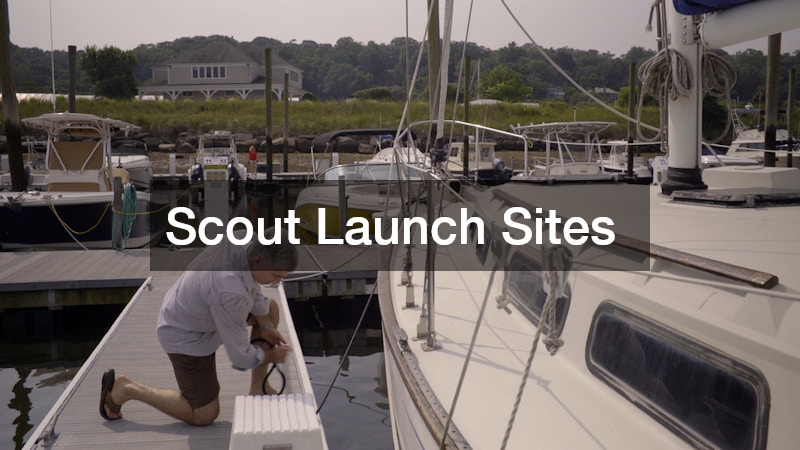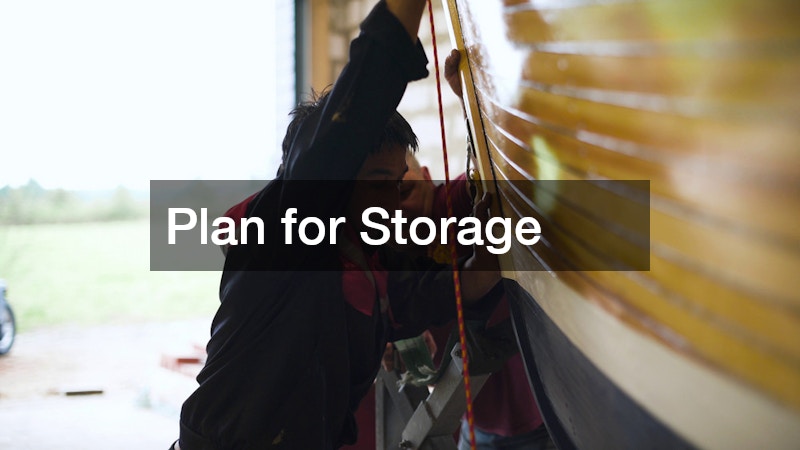Buying a boat for the first time is a significant and often emotional investment. It represents a lifestyle decision that brings with it the promise of freedom on the water, the ability to explore new horizons, and the creation of lifelong memories. However, stepping into the world of boating without proper knowledge can result in costly mistakes and avoidable regrets. From understanding where and how your boat will be stored to choosing the best type of motor or evaluating inspection procedures, there’s a lot more involved than just picking a vessel that looks good on a showroom floor.
Our tips also go beyond the boat itself. They include considerations like whether to join a recreational club, how to handle home-based storage solutions, and what kind of materials are needed if you’re planning to build or repair a dock. You’ll also learn the importance of working with specialists, such as engine providers or marine inspectors, and why their expertise can prevent unexpected problems down the line. Understanding where to seek help, what questions to ask, and what to expect from service providers is essential when you’re entering uncharted waters for the first time.
Each of the ten tips in this guide will help you avoid common pitfalls and feel confident in your decisions. You’ll come away with a well-rounded perspective on boat ownership—from logistics to legalities, from technical specs to long-term planning. If you’re dreaming about owning a boat and want to make sure you get started the right way, this article offers the clarity and guidance you need. Let’s dive into the best practices, strategies, and insights every beginner should know before taking the plunge into boat ownership.
1. Shop Local Builders
When beginning the process of purchasing your first boat, it’s easy to be drawn to national brands and flashy advertisements. However, working with regional or independent builders can offer unexpected benefits. These companies often have deep-rooted knowledge of local conditions, which means the boats they craft are typically suited for the unique waterways and weather of your region. Choosing a builder closer to home can also offer a more hands-on design and customization experience, which is especially valuable if you have specific needs or preferences in mind.
Local boat manufacturers are often more flexible in their production process, allowing for personalized features and responsive service. Unlike larger companies that rely on mass production and standardized builds, these builders may offer tailor-made options, walk-throughs during different stages of production, and direct communication throughout the process. For first-time buyers, this means more transparency and the comfort of building a trusted relationship with the people making your boat.
Following sound boat buying advice often means looking beyond big names and toward builders who understand your specific environment and boating goals. By partnering with a local expert, you’re more likely to get a vessel that aligns with both your lifestyle and regional demands. Plus, having the manufacturer close by can simplify warranty claims, repairs, and routine maintenance over the life of the boat.
2. Scout Launch Sites

Before buying your first boat, consider where and how you’ll be launching it. Having access to a convenient and well-maintained launch site makes a significant difference in how often and how easily you’ll use your boat. This is where researching local facilities—whether public or private—becomes an essential step. The proximity, security, and layout of nearby access points can impact not only your daily usage but also long-term storage options and costs.
Many first-time owners overlook the role of boat docks in their purchase plan. You may need to secure a slip at a marina, understand the tidal patterns of your area, or evaluate how crowded popular launch points get during the season. Factors like dock height, accessibility, water depth, and even parking availability should all influence your decision. These logistical details can shape whether a boat model is even suitable for where you plan to launch and store it.
A foundational piece of boat buying advice is to plan your access before you make your purchase. A boat is only as useful as your ability to get it in and out of the water safely and efficiently. Start by visiting local docks, asking about seasonal access, and inquiring about maintenance services offered at each location. This insight ensures you don’t end up with a boat that’s perfect in theory, but impractical in reality.
3. Join a Boating Club
If you’re unsure about committing to boat ownership right away, joining a recreational community can be a smart way to get started. Clubs often provide access to a fleet of boats for a monthly or annual fee, allowing you to test out different types before making a permanent decision. This approach helps you understand what styles and features fit your lifestyle, whether it’s sailing, fishing, or water sports.
These boat clubs typically offer training programs, social events, and expert guidance—all valuable tools for a beginner. You’ll get real-world experience in docking, navigation, and maintenance, all while enjoying the community of like-minded boating enthusiasts. For those unsure of which size or engine type they prefer, this setup provides risk-free exposure to a variety of options before investing.
Listening to experienced voices in boat buying advice, many recommend trying before buying. Clubs offer the perfect test drive experience, minus the pressure. They give you a taste of boating life, help you hone your skills, and build your confidence—all of which make your eventual purchase more informed and less stressful.
4. Plan for Storage

Storage is one of the most overlooked aspects of boat ownership, yet it’s crucial for preserving your investment. Leaving your boat in the water year-round can lead to faster wear, hull damage, and unnecessary maintenance. Fortunately, there are plenty of dry storage options, including covered garages, trailers, and mechanical lifts that can help keep your vessel in top condition.
One especially effective method involves boat lifts, which elevate your boat above the waterline when not in use. This reduces exposure to moisture, algae, and corrosion, especially in saltwater environments. These lifts are often installed at residential docks and marinas and can be either manual or electric. Depending on your boat’s size and weight, different models may be suitable, and installation often requires professional help.
Proper storage is a frequent point in expert boat buying advice, as it extends your boat’s lifespan and minimizes unexpected repairs. Before purchasing, think about where your boat will live when it’s not on the water. Factoring this into your total cost and setup plan will lead to better budgeting and a smoother ownership experience.
5. Choose the Right Motor
Your engine choice directly affects your boat’s performance, efficiency, and operating costs. For beginners, outboard motors are typically recommended due to their simplicity and ease of maintenance. Understanding the power range needed for your intended activities—whether cruising, towing, or fishing—helps narrow down your options early in the buying process.
Working with a trusted outboard dealer ensures you get matched with the right engine. Dealers can provide valuable insights on horsepower needs, fuel efficiency, noise levels, and brand comparisons. They also help with installation, tuning, and warranty coverage. Unlike online sellers, a local dealer offers post-purchase support that’s vital for long-term satisfaction.
When following boat buying advice, it’s important not to separate the boat from the engine. They work together as a single system, and an underpowered or incompatible motor can lead to safety issues or underperformance. A good dealer doesn’t just sell you an engine—they help you understand how that engine suits your vessel and goals.
6. Check Nearby Access

When planning your first boat purchase, it’s not enough to focus only on the boat itself—you also need to consider the infrastructure around it. Proximity to a convenient docking location can make or break your boating routine. Long travel times to the marina, traffic congestion, and limited seasonal access can turn excitement into a hassle quickly.
Some boat docks may have limited hours, strict regulations, or maintenance issues that go unnoticed until it’s too late. That’s why visiting and evaluating potential docking points is essential. Talk to dockmasters, assess the layout, check security measures, and see how easy it is to maneuver your boat in and out of the slips. Don’t rely on websites or photos—go in person.
This is a core point in responsible boat buying advice. The best boat in the world won’t be enjoyable if getting to the water is consistently difficult. Do your homework on access points early in the buying journey, and make docking logistics a priority rather than an afterthought.
7. Inspect the Seating
Comfort is often underrated when selecting a boat, especially by first-time buyers focused more on engines or price tags. But the reality is, uncomfortable seating can ruin long outings and make passengers less inclined to join you again. Pay attention to the layout, cushioning, and weather durability of the seating and interior spaces.
Many boats come with factory-installed boat upholstery that varies in quality depending on price range and manufacturer. Look for UV-resistant materials, mildew protection, and marine-grade stitching. The feel of the cushions, the ergonomic positioning, and the overall design should make you feel at home, even during bumpy rides.
One piece of practical boat buying advice is to sit in the boat—don’t just look at it. Assess how it feels after a few minutes. Imagine a full day onboard. Will you be comfortable? Does the layout make sense for your guests or family? Don’t overlook this small detail—it has a huge impact on how much you’ll enjoy your boat.
8. Build a Dock at Home

For homeowners living on the water, building a private docking space is a major convenience. It gives you the freedom to launch, clean, and secure your boat right from your backyard. But constructing a dock is more complicated than it might seem—it involves permits, materials, water regulations, and professional design.
Working with professional dock builders ensures that the structure meets safety standards and environmental guidelines. These specialists can also recommend layouts that maximize your shoreline space and accommodate your specific vessel. Whether it’s a floating dock or a permanent structure, a custom approach can make everyday boating easier and safer.
According to seasoned boat buying advice, having a dock on your property increases not only convenience but also the value of your home. It allows for spontaneous boating without the hassle of public facilities. Just make sure to hire reputable contractors who understand both structural integrity and local zoning laws.
9. Pick Quality Wood
Whether you’re building a dock, a boathouse, or doing maintenance, the type of wood you choose matters. Marine environments are harsh. Sunlight, water, and salt can break down inferior materials quickly. That’s why investing in weather-resistant materials is essential to keep your boating structures sturdy and long-lasting.
Marine lumber is specifically treated for durability in aquatic settings. It resists rot, fungus, and water damage more effectively than regular wood. It’s used in dock framing, decking, and even certain interior elements of wooden boats. While it may cost more upfront, it offers longevity and reduces the need for frequent repairs.
If you’re following trustworthy boat buying advice, make sure quality materials are part of your long-term boating plan. Even if you’re not building anything yourself, understanding the materials used in your boat’s surroundings can help you make smarter investment decisions and prevent future headaches.
10. Get a Pro Inspection
Even if a boat looks clean and well-kept, hidden problems can cost you thousands later. Before purchasing, it’s wise to hire a qualified marine inspector to conduct a full evaluation. They’ll check everything from hull integrity and mechanical systems to electrical components and safety gear.
A certified yacht surveyor has the training and experience to detect issues that might go unnoticed by the average buyer. They provide a detailed report that can influence pricing negotiations and help you avoid a bad deal. Many insurers and lenders even require a survey before finalizing paperwork.
A key piece of boat buying advice is to never skip this step, especially when buying used. A proper survey protects your investment and ensures that your boat is seaworthy and compliant with maritime standards. It’s a modest upfront expense that could save you a fortune in the long run.
Buying your first boat is an exciting step, but it’s also one that requires thoughtful planning, realistic expectations, and expert guidance. There’s more to boat ownership than simply selecting a vessel you like. Every part of the process, from choosing your manufacturer to deciding on where you’ll launch, maintain, and store your boat, plays a critical role in ensuring your experience is enjoyable and stress-free.
These insights in the article are meant to make your journey smoother and more informed. You now understand how essential it is to work with knowledgeable dealers, consider long-term storage solutions, and make smart material choices if you’re building your docking space.
These pieces of boat buying advice don’t just help you choose the right boat, they also help you set yourself up for lasting success as a boat owner. The first purchase sets the tone for your boating lifestyle, and making educated decisions now will help you avoid expensive mistakes later. A great boat should offer more than fun. It should provide peace of mind, efficiency, and easy maintenance, all of which begin with the advice and decisions you make upfront.
Whether you’re just starting to dream about your future on the water or you’re actively comparing options, this guide was designed to empower you to move forward with confidence. Your first boat should be something you cherish, not a source of confusion or regret. Let these ten steps serve as your roadmap—and keep this article handy as you progress through the buying process. With the right preparation, knowledge, and mindset, you’ll soon find yourself enjoying the open water with complete assurance that you made the right call.







